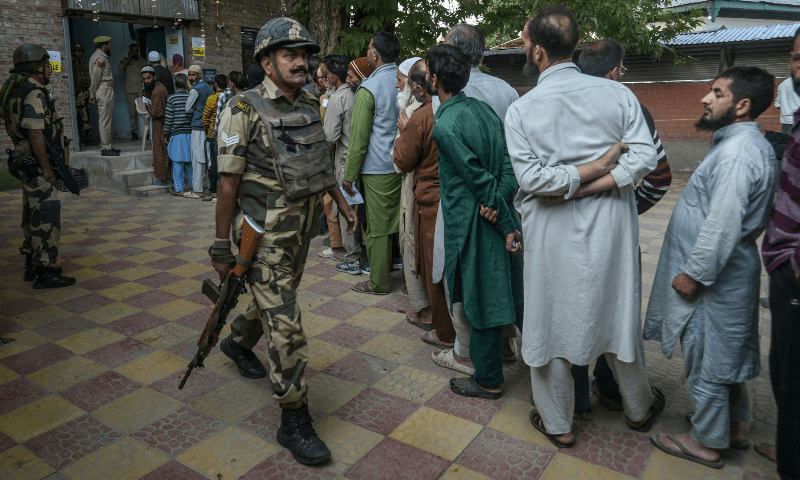SRINAGAR: The three-stage assembly elections in India-held Jammu and Kashmir commenced on Wednesday, amid widespread reports of repression. Amnesty International has called on New Delhi to end the use of restrictive travel bans and arbitrary detentions against dissenters in the region.
Amnesty criticized the Indian government for using stringent anti-terror laws to intimidate those critical of its policies in Jammu and Kashmir, especially following the region’s special constitutional status revocation in 2019. This marks the first election in the area in a decade since the controversial move.
The human rights organization highlighted several repressive measures, including passport revocations, creation of opaque ‘no-fly lists’, and arbitrary cancellations of Overseas Citizenship of India status for critics. Amnesty noted that these actions have severely restricted freedom of expression and movement for those opposing the government.
Aakar Patel, chair of the board at Amnesty India, urged Indian authorities to cease their harassment campaign against dissenting voices. He pointed out that since the abrogation of Article 370, at least five individuals have been barred from traveling despite having valid documents.
Amnesty also documented cases where critics faced passport issues. Kashmiri photojournalist Masrat Zahra had her passport revoked while studying in the US, preventing her from returning to India. Political leader Waheed Para had his passport revoked in 2023 before a planned US fellowship. British-Indian professor Nitasha Kaul was denied entry to India despite holding a UK passport.
The Indian government continues to misuse the Public Safety Act and the Unlawful Activities (Prevention) Act (UAPA) for arbitrary detentions. Notable detainees include Khurram Parvez, coordinator of the Jammu & Kashmir Coalition of Civil Society, and journalist Irfan Mehraj, both of whom have been held since 2021 and 2023, respectively.
Amnesty International stressed the need for immediate action to address the human rights violations in the region, including the release of those detained under repressive laws and a call for the international community to support efforts to end these abuses.



